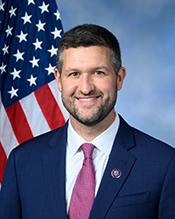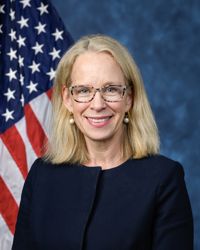H.R. 891: Pro-Housing Act of 2025
This bill, titled the Pro-Housing Act of 2025, aims to improve the availability and affordability of housing in the United States by establishing programs at the federal level for direct funding and assistance to local entities. Below are the key components of the bill.
Local Housing Policy Grants and Loans
The bill proposes several funding mechanisms aimed at supporting the development and implementation of local housing policy plans:
- Planning Grants: The Secretary of Housing and Urban Development (HUD) will award competitive grants to eligible entities to help them develop and evaluate housing policy plans.
- Implementation Grants: Similar to planning grants, these funds are allocated for implementing previously developed housing policy plans.
- Direct Loans: The HUD Secretary will also offer direct loans to eligible entities at interest rates lower than treasury obligations to assist with the implementation of housing plans. At least 20% of loan amounts must be allocated to rural or exurban areas.
Eligibility and Priority Criteria
Entities eligible for grants and loans include states, local governments, coalitions of these entities, and certain indigenous organizations. To receive funding, applicants must demonstrate:
- An ability to enhance housing supply and affordability.
- Plans to reduce barriers to affordable housing development.
- Your strategy to avoid displacing existing residents during new housing developments.
Matching Funds Requirement
A non-federal matching requirement is instituted based on the population of the area under the jurisdiction of the eligible entity. For example:
- 15% for areas with populations of 15,000 or fewer.
- 25% for populations between 15,001 and 30,000.
- 45% for populations of 70,001 or more.
These contributions can come from other federal, state, or local housing assistance that the entity is receiving.
Use of Funds
Grants and loans must be used for specific purposes, including:
- Quantifying current and future housing needs.
- Developing strategies to increase housing supply.
- Minimizing the displacement of low-income individuals.
- Engaging local stakeholders in housing plan development.
Guidance and Learning Network
The HUD Secretary is required to issue guidance within 90 days of the bill's enactment to encourage effective housing strategies. A learning network will be established to share best practices and facilitate collaboration among local entities regarding housing policy development.
Report Submission and Analysis
Entities receiving funds must submit reports on their expenditures and the outcomes of their housing policy plans at various intervals, ensuring accountability and effectiveness. A study by the Secretary is mandated to assess the impact and success of the programs established under this bill five years after enactment and to submit a report based on the findings.
Transfer of Unused Federal Property
The bill also establishes a pilot program for transferring unused federal real property to eligible entities for developing mixed-use neighborhoods or affordable housing. This process must occur within five years of the bill's enactment.
Funding Authorization
The bill authorizes $200 million annually from 2026 through 2031 to fund these initiatives and assist in covering the costs of providing loans.
Definitions
Important definitions included in the bill specify terms such as "cost-burdened household," "eligible entity," and "housing policy plan," which inform the scope and application of the proposed programs.
Relevant Companies
- BBY (Best Buy): May offer housing supply-related technology and services as demand for housing increases.
- DHI (D.R. Horton): As a major home builder, likely to see an increase in business due to potential boosts in affordable housing development.
- PHM (PulteGroup): Similar to D.R. Horton, increased business opportunities as housing supply needs rise.
- LEN (Lennar Corporation): Could experience growth as demand for affordable housing increases and new developments are encouraged.
This is an AI-generated summary of the bill text. There may be mistakes.
Sponsors
1 sponsor
Actions
3 actions
| Date | Action |
|---|---|
| Feb. 01, 2025 | Referred to the Subcommittee on Economic Development, Public Buildings, and Emergency Management. |
| Jan. 31, 2025 | Introduced in House |
| Jan. 31, 2025 | Referred to the Committee on Financial Services, and in addition to the Committee on Transportation and Infrastructure, for a period to be subsequently determined by the Speaker, in each case for consideration of such provisions as fall within the jurisdiction of the committee concerned. |
Corporate Lobbying
0 companies lobbying
None found.
* Note that there can be significant delays in lobbying disclosures, and our data may be incomplete.













